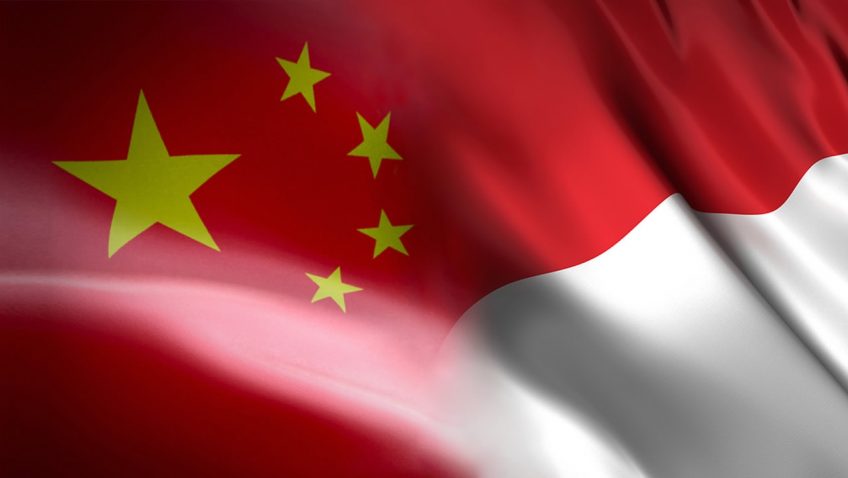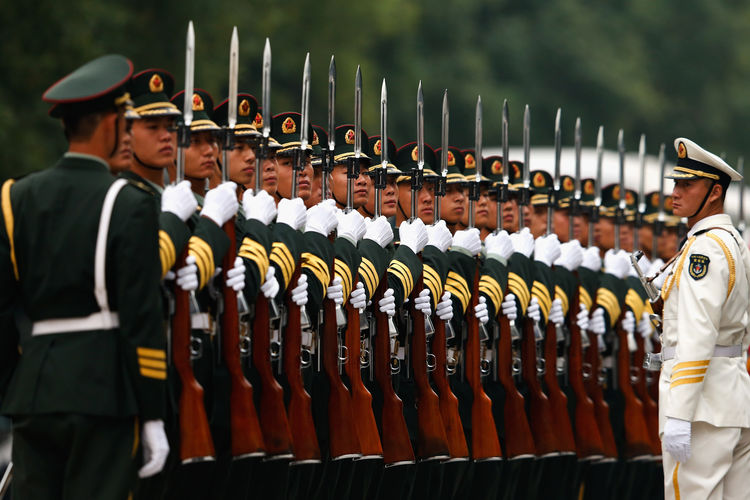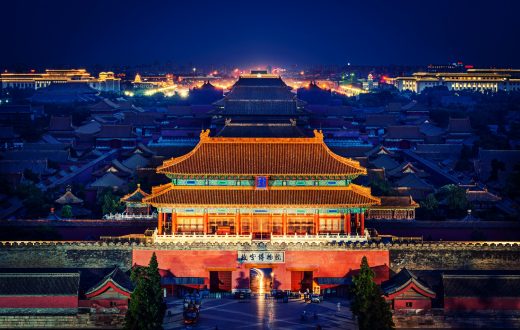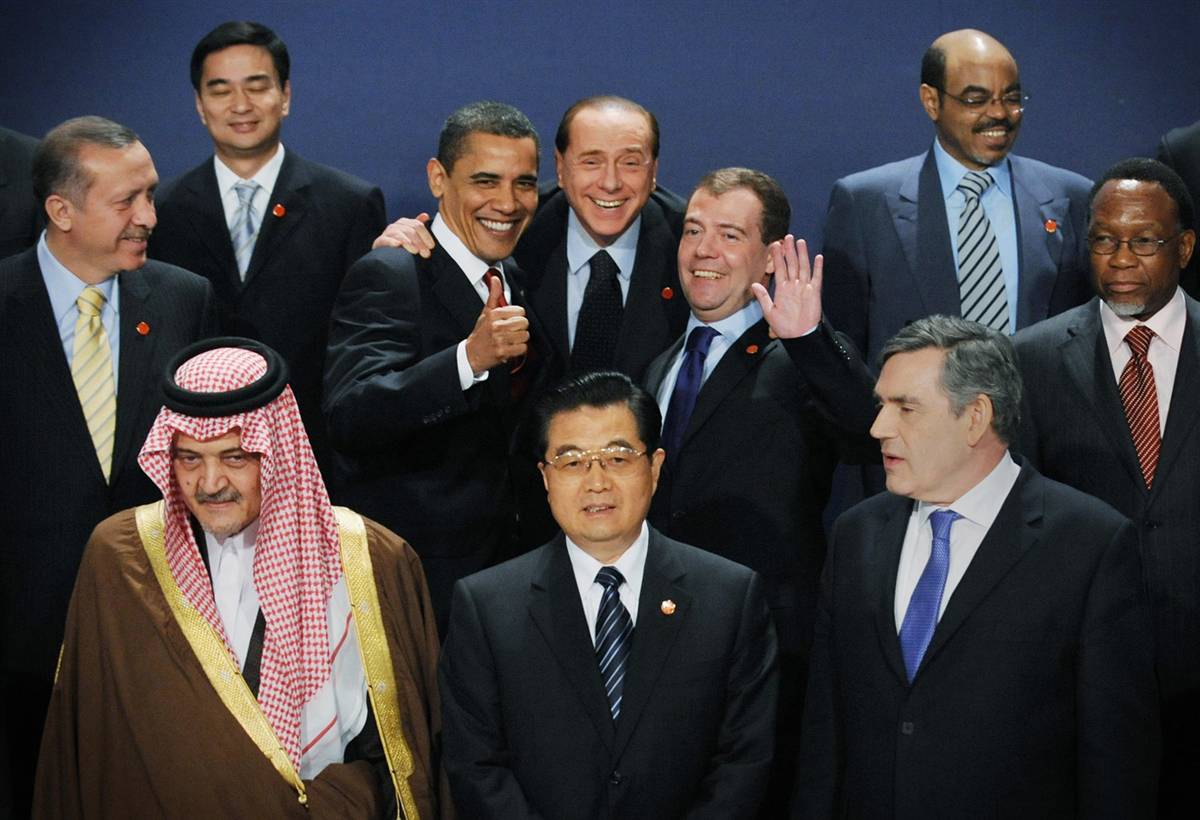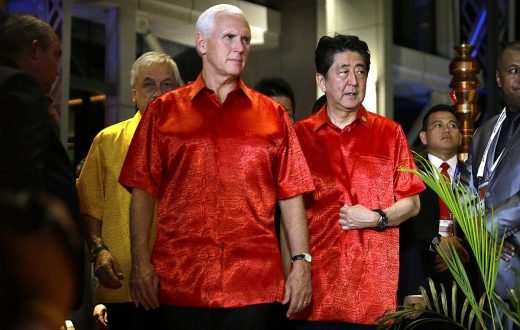Introduction
Prof. Hasjim Djalal is widely known as Indonesia’s foremost expert on the law of the sea – he also served as Indonesia’s ambassador to Canada and Germany. Prof. Djalal initiated the track 2 Workshop process in the early 1990’s, which succeeded in getting all the South China Sea claimants to discuss their issues. FPCI sent our researcher Calvin Khoe to talk to Prof. Djalal regarding the latest row between Indonesia and China over the North Natuna sea and on the South China Sea Dispute in general.
Q: Pak Hasjim, Jakarta and Beijing are now having a spat over the incursion of Chinese fishing vessels into the North Natuna waters. Is China claiming parts of the Indonesian Natuna waters? Why are these claims, including from ASEAN claimants, so difficult to resolve?
H: From the very beginning, we had already asked everyone else in ASEAN – what actually are you claiming in the South China Sea? We also asked the same thing to China as well, but China doesn’t usually answer that question.
Q: But we know that they claimed the Nine-Dash Line.
H: The Nine-Dash Line is also one of the things that we asked. The Nine-Dash Line has been changed so many times in the past and we asked them, what are you actually claiming with this Nine-Dash Line? Is it a territorial claim in that the sea, the islands, the rocks, the reefs, the fish and everything inside of this line are claimed by the Chinese? So, is the Nine-Dash Line a territorial claim or is it simply a claim of history in the nature that China has, in the past, played a very important part in that Nine-Dash Line claim. There is not a very clear answer from China.
Q: China says her claim has already been there long before the UNCLOS – is that true?
H: Oh yes, in the past. They say that it’s been there in history. What we still don’t know is that are you claiming territorial rights because of that, or are you only claiming some jurisdictions? Or are you claiming some interests only? It’s not very clear, but throughout the process, it appears that they are claiming this as territorial. But where are the limitations of those claims of “territorial”? The Nine-Dash Line is not very clear on that either because we have asked them from time to time, how do you define the Nine-Dash Line? What are the coordinates of those lines? Are those straight lines, or line yang bengkok bengkok (editor: bending in many parts)? If it is a straight line, how do you connect one point to the other? There is no clear explanation of that.
Q: In your opinion, Pak, we know that China has not been clear and they also do not say much when asked. Why is that? Why do they never talk in detail about the Nine-Dash Line?
H: (Laughs) Sometimes I joke about it, you know. In my personal view, they’re following some kind of Chinese philosophy – the Sun Tzu philosophy. The philosophy says that if you cannot convince your friends of your own views, just confuse them. Because every time someone asks them these questions, the answers are usually not very clear, you know.
Q: So, how do we deal with the Chinese?
H: … I am thinking that since our relations with China have gone on for centuries, we could still develop a good kind of understanding. But again, that is not easy to do. It especially depends on what the governments want on both sides. The government of Indonesia does not know how to confuse China – we don’t have any Sun Tzu doctrine. (Laughs)
Q: Pak Hasjim, out of curiosity, we know that it has been there – the claim and the narrative. Throughout the Chinese administrations, do you see any changes of tones or behavior or do you see that they have remained consistent over the decades?
H: So my view is that slowly it appears that what the Chinese are claiming in the South China Sea are the features, the rocks, the islands, the reefs, and whatever rights they may have under the international law. So they may have the right of the territorial sea, they may have the right on the continental shelf, they may also have the right on economic zones. But the question would be then, how do these small little rocks have territorial rights to become an eligible area of the sea? They are claiming territorial rights of the rocks, and the rocks they claim would have territorial rights according to the Law of the Sea – like the territorial sea, the economic zone, the continental shelf and so forth. What’s worse than the rocks are the reefs underwater – that can be made for reclamation, like Japan did.
Q: Japan also did this? They did reclamation on the reefs and said that it’s their territorial right?
H: Yes, in the Pacific Ocean, but it was not recognized internationally because they are not rocks – it is artificial. It is a very detailed legal issue. So my feeling is what the Chinese are claiming as territorial rights are those islands, rocks, and features within the Nine-Dash Line. So now the question would then be – if assuming they have the rights over those features, what kind of rights do those features have over the sea?
Q: Are the islands, rocks, and features in the sea well defined in UNCLOS?
H: Yes, it is defined in UNCLOS. I say, what is the difference between rocks and islands? Rocks, for instance, cannot have maritime zones; they can only have maritime safety areas. Territorial rights have a limit and have territorial sea, and also the economic zone. There are some conditions of the Law of the Sea, for instance, islands can sustain human habitation and rocks cannot. You cannot live on rocks.
Q: So if it is clearly stated in UNCLOS, why is China’s response still this way?
H: For political reasons. I think they like to have control of the South China Sea, and I also think it is to make it difficult for the United States to move as freely as possible in the South China Sea.
For Indonesia, we are only asking questions. We keep asking questions like, how do you define the Nine-Dash Line? What are the coordinates? How do you connect one line with the other? But they never answer. The answer that China keeps saying to Indonesia is that they don’t claim Natuna, they know Natuna belongs to Indonesia. They are doing it not only on Natuna, but also the islands like the Spratlys, which are not controlled by China. The Spratlys are controlled by Vietnam and Itu Aba is controlled by Taiwan.
Q: What does “control” mean here?
H: Oh yes, they have some administration and some people there. They claim it belongs to them. For instance, in Itu Aba, I have been there, there is a settlement of people there. The Taiwanese in Itu Aba, for instance, are making it very clear that the island is not rocks, but is an island and that that island can sustain human habitation where they showed us the plantations, the coconut trees, the bananas, the water that is not taken from the sea, and so on. In other words, they are trying to make it look like a real island, in which it is an island. But then they are claiming 200 nautical miles territorial sea from that island – into the economic zone. We asked them about this, and they say islands that can claim 200 nautical miles economic zone or 12 nautical miles territorial sea are those that can sustain human habitation and economic life. I asked: can Itu Aba sustain human habitation? They said yes.
Q: Looking at the timeline, the Philippines sued China in the Permanent Court of Arbitration (PCA) and the verdict disqualified the Nine-Dash Line. At that time, we expected it to become a game-changer, but it seems nothing happened. My question to you as a Law of the Sea expert is, after the verdict of the PCA, was it significant to the situation?
H: Well, China does not recognize the result of this arbitration. If you go to court, you should follow the decision of the court. We went to court also, for instance, for the Sipadan and Ligitan case, despite the fact that some of us objected to go there before. But then the government decided to go to court and we followed the decision of the court. We lost the case. And when we lose, then what can we do? It belongs to Malaysia now.
And the same thing with this, we hope China, that when they go to the court, they would agree with the decision. But China said that they did not agree to go to court, so the decision of the court is without China. They said the decision made by the court is on the basis of a claim made by The Philippines, and China was not a party to that dispute. Since the court has no specific interest in it, thus the court has taken a decision on the basis of law. That is why we thought we should respect the decision of the court.
Q: But can we say the court verdict is the only objective international view on the South China Sea?
H: Yes, we are not a party of the court decision, but since this is the International Court of Justice that made this decision, then we sort of at least respect it. Therefore in the South China Sea, the Chinese has become much more, how do you say, difficult to understand. Just like Sun Tzu said – “What I want is what I want”. If you agree with it or not, it does not matter to me.
Q: Pak, moving on to today’s tension between Indonesia and China – in the past few days, we know the tension has escalated until the recent development in which military deterrence has become something orchestrated in that area right now and Indonesia has gone through diplomatic channels and also military deterrence. Since the Chinese have responded already, what is your take on this? Do you think Indonesia’s move is correct for this time?
H: Of course, Indonesia looks to China with a different kind of vision. We like to see China politically as a friend and as a partner in development and establishing peace and stability in the region as a whole. But on the other hand, not all countries are looking at it like that. Apparently, China in the past, we feel, are looking similar to us. But now suddenly, they may put up national interest ahead of this kind of cooperative relationship. Their national interest may or may not coincide with the views of partnership.
So, I think our relations with China have to be developed in a much more positive way, and we are trying to do that. Like developing more kinds of informal process, because not everything can be solved by formal process. Like the workshop that I did, it was an informal process and we kept talking and trying to find out what the other side is trying to do and what can be done. In the end, they have suggested several ideas also, but then the implementation was not easy either.
Q: What were their suggestions?
H: Like joint development. If you are in a dispute regarding who owns a certain area, develop a joint development between the parties concerned to work together. We tried to do that but then it got stuck with the parties concerned. Who are the parties? China. And who are the others that claimed the area? Philippines, Malaysia, Vietnam. When it comes to the implementation, it’s not very easy. Those parties, are they states or companies or corporations? And development on what? On fish? On trees? On bananas? On the environment? On scientific research? On what? It is not easy to determine.
Q: So what do the Chinese suggest?
H: The Chinese kept trying to do together a joint development on scientific research. And in fact, Indonesia had suggested – let us do it, if it is difficult to find the place, Indonesia offered an area for joint development on scientific studies like Anambas islands. It is not claimed by anyone, but we are open to it. Joint biodiversity studies for instance. We have Anambas in the southwest, let us do it next time in the southeast. Then the next time in the northeast, northwest, and then central in the Spratlys. We tried to do that. And basically that idea was accepted. In the west, we have done that. We have produced results and it has been published globally. We discovered new resources, new species, and all sorts. So that was one of the most successful joint efforts, which took place back in the early 2000s.
The next one we suggested was in the southeast, the Palawan Islands. The process was informal, and participation was academic, non-political and non-territorial claims. But unfortunately, the Philippines sort of changed the process. So instead of an informal process, the Philippines changed it into a formal process. Consequently, the formal process got stuck. China cannot sit down formally with Taiwan. So, many countries withdrew…. an embarrassing and strange decision made by the Philippines at that time. We tried to do it again in the other parts, in the northeast and northwest, but it hasn’t gone anywhere up until now because of that very negative experience.
Now everybody talks about joint development all the time, but specifically, we are still trying to look after years, joint development on what? On scientific development, on resource management, on environmental management? Joint development where? On the islands, on the sea, on the rocks? Who is participating? Is it governments, is it companies, is it academic groups? Is it formal or informal? That kind of discussion keeps going on all the time up until now.
Q: How strategic is Natuna for Indonesia and Southeast Asia?
H: Natuna is very important for Indonesia because it is in the border area. It is also very important because it is the center of communication between Asia and the Pacific. A lot of security issues are involved and it is important for Asia Pacific as a whole because it is in the center. It is a very important place – a strategic location.
Q: Looking to the latest development, people are saying in the media right now, will the tension affect the bilateral relations between Indonesia and China? What is your take on it?
As I said, Indonesia and China’s relationship has been going on for centuries. It has not always been very positive but we learn something from that. It is important for us to develop a mechanism and develop a relationship for the benefit of the countries and the benefit of the region as a whole. That kind of possibility is possible, it has been proven before. That is why I was saying – can we again revive the spirit of Soekarno and Zhou Enlai? Can we revive that spirit? At that time, it was the spirit of anti-colonialism. Now, the spirit is not anti-anybody but the spirit for economic development, for making peace and stability in the Indo-Pacific.
Q: Pak, if you could suggest a policy to Pak Jokowi in regards to China – like you said about the spirit, finding common ground, and finding cooperative engagement with China, what would you suggest?
H: As I said there are so many areas that could be discussed. The strategic area of the Indo-Pacific, especially because the President has been talking about the Indo-Pacific all the time now. China is definitely, in my mind, interested in the development of cooperative relationships in the areas some refer to as the “Indo-Pacific”, although the Chinese have not announced support for the Indo-Pacific as a diplomatic concept. They have a lot of interest in the Indian Ocean, they have a lot of interest in the Pacific Ocean, and they have a lot of interest between the two. That kind of possibility is still there. But from time to time as we see today, they take actions that may diminish the interest of doing so in Indonesia. So I hope that this can be overcome.
Q: Pak, how can the Code of Conduct, that is currently still being negotiated, be significant to the process of the South China Sea?
H: The Code of Conduct is continuing, in fact we have done it before with the Declaration of Conduct in 2002. So the process can go on and it should go on. In my mind, the only problem that I see is, is the Code of Conduct between China and ASEAN or between China and members of the ASEAN countries? Many people are saying this is the Code of Conduct between China and ASEAN – ASEAN as an organization. China said to me, no it is not between China and ASEAN, China has no problem with ASEAN they say. China has a problem with some members of ASEAN. That is why the Declaration of Conduct was signed by those claimant countries. But those are highly technical issues, as long as we can have that Code of Conduct and pursue it, I think we should do it. And I do not think China would make it so difficult for that one.
Q: Are the different perspectives the last remaining challenge?
H: Yeah, it depends on the Foreign Ministry, I think. When I retired, I was appointed as Roving Ambassador for six years, going around talking to people to find out what can be done. Indonesia has done so with regard to Maritime Boundaries with Malaysia. The President has appointed Eddy Pratomo, Special Envoy of the President, in order to develop and expedite maritime boundary agreements between Indonesia and Malaysia. I have always been thinking but not saying anything, I think the government should also appoint a special ambassador for peacemaking.
Q: Do you mean a peacemaking ambassador directly for the issue of the South China Sea?
H: No, but that’s one of it. Not only the South China Sea, but there are many other issues that we have. In order to have the Foreign Minister to deal with the issue in a much more concentrated way. Of course she still has all kinds of director-generals and so forth, but to be supported by some kind of an ambassador for peacemaking, I think somehow it will be helpful. But I do not make this suggestion because people will ask who should it be? Then it becomes a political issue. (Laughs)
Q: So the ambassador should circle around the claimant states and try to find some common ground?
H: Yes, that’s it. I was not an ambassador for peacemaking, but when I retired I became Ambassador-at-Large for six years. At that time, the Foreign Minister asked me to go visit various countries and talk to them about the problem that we had and how to settle it regionally and bilaterally.
Q: Pak, we always say that Indonesia is not part of the claimant states. But considering the tension we have right now, is this the time to say that we are also one of the claimants?
H: No. We do not have any claim. Our claim is Natuna – not just a claim, but it is already recognized by everyone and we have already established the territorial line. The territorial line has been deposited in the UN and there has been no objection to that from any countries. For that matter, what we are probably missing is how do we establish the boundaries between us and the others, our neighbors? Because one of the principles of international law that I know is, “Good fences will make good neighbors. Bad fences will make bad neighbors. No fences will make the neighbors quarrel and fight.”
The South China Sea, the territorial sea has a problem. The exclusive economic zone has no borders, but the continental shelf has borders. We need to continue to develop that. We have been talking with Vietnam on the economic zone after we agreed with Vietnam on continental shelf boundaries. After so many years of discussion, now we are trying to negotiate with Vietnam on economic zone boundaries. We discussed this with Vietnam and one of the reasons why is because Spratly is occupied by Vietnam. So between Spratly and Natuna, we talked about that with Vietnam.
Q: Pak, last two questions, you said before that the Japanese did the same claim like the Chinese did, by making reclamations and saying that they are not violating UNCLOS. Based on that context, do you see any loopholes on the Law of the Sea?
H: Not in this issue. In other issues, yes there is. We have tried to do that for years. For instance, the exclusive economic zone – under the Law of the Sea – the resources, the management of the environment, and the management of scientific research, belong to the coastal countries. But there is freedom of navigation on the water and in the air above it. That is our quarrel with the Americans because the Americans argue all the time that in the exclusive economic zone they are free to do military exercises. Because they are in the water, they have the freedom of navigation and shipping. So, we should not have any right to regulate the freedom of navigation in the economic zone. That is the American view. In fact, they have quarrels with China all the time on that one.
I think Vietnam, Indonesia, and China have agreed to establish a sort of “code of conduct” in regard to military activities and intelligence-gathering activities in the economic zone, including in its airspace. Because the Convention of the Law of the Sea talks about the freedom of navigation and shipping in the economic zone. America says there is freedom and they are not a party of the UNCLOS. In the negotiations I organized together with other parties in Bali, Shanghai, Tokyo, and Honolulu – in Tokyo, we accepted certain guidelines for military exercises in the economic zone of other countries. In the guidelines, we asked the Japanese to put it to the United Nations, and the US opposed it saying, “No need for any guidelines, freedom of navigation!” That will be a problem.
Q: So for that issue, things need to be fixed. But for this issue on South China Sea, are there no loopholes in UNCLOS?
H: There is the issue of fisheries. China now is claiming some sort of traditional fishing grounds – they say their fishermen have been fishing there. In the Law of the Sea Convention, and in the negotiation of the South China Sea, we talk a lot about traditional fishing rights. And we respect some of them. For instance, traditional fishing rights of Malaysia around Anambas. But then, there are so many conditions for traditional fishing rights. First, where do the fishermen come from? What kind of fish do they catch? What kind of equipment do they use? What kind of effect does it have on local fishermen? All these things should be discussed. The Chinese never said anything to that.
Q: So can we say that the Chinese never go into too much detail on the issue of South China Sea? They say, “Here, this is the Nine-Dash Line” and stop there?
H: Are you saying to me again to repeat the Sun Tzu doctrine? (Laughs)
Q: Last question, the tension has been there since 2016. The situation was responded by strategically establishing the TNI joint operation Kogabwilhan I in Natuna right now. Moving forward, in all sectors – national security, economy, legal – what would be the strategic policy you suggest?
H: We need to understand basically what are our interests. There are interests of security, interests of territoriality, interests of resources management, of environment management and so forth. We have to formulate our views on those.
Q: Are you saying that we are not really clear on our interests on South China Sea?
H: Not so much yet. There are many points that are not very clear to us. We will have to work with that, and I think the government should do that. In the end, maybe they should appoint some kind of special ambassador for this. For example, we have a special ambassador for maritime boundaries, but not so much for the Law of the Sea as a whole, for the implementation of the Law of the Sea. I think we need that.
Q: Thank you Pak Hasjim for talking to FPCI.
— end of interview —

